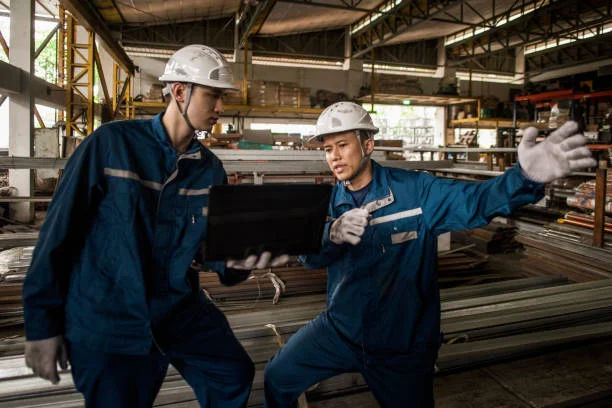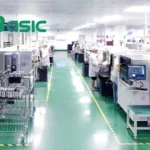Singapore has no natural resources. It’s smaller than New York City. Yet it’s become one of Asia’s manufacturing powerhouses.
How does that work?
If you’re considering setting up a manufacturing operation in Singapore, you’re probably wondering whether it makes sense. The labour costs are high. Land is expensive. The country imports almost everything.
But here’s what you need to know: Singapore’s manufacturing sector contributed over S$90 billion to its GDP in recent years. Global giants like Rolls-Royce, Procter & Gamble, and Pfizer manufacture here. They’re not making a mistake—and you might not be either.
This guide will walk you through everything you need to understand about incorporating a manufacturing company in Singapore, from the unique regulatory requirements to the specific licences you’ll need, and why this small nation might be exactly where your production facility belongs.
Discover more strategies that align with your goals in this related post today.
Why Manufacturing Companies Choose Singapore
Let’s tackle the obvious question first. Why manufacture in a country where everything costs more?
Singapore offers something money can’t easily buy elsewhere: certainty.
Your intellectual property gets protected by some of the world’s strongest laws. Your supply chains work because the port never sleeps and customs clearance happens in hours, not days. Your workforce is educated, your infrastructure is world-class, and your government actively wants you to succeed.
Here’s the thing most entrepreneurs miss: manufacturing isn’t just about minimising costs anymore. It’s about managing risk. A facility in Singapore gives you stability in an increasingly unstable region.
The exception is if you’re making low-margin, labour-intensive products. In that case, Singapore probably isn’t your best choice. But for high-value manufacturing—pharmaceuticals, aerospace components, precision engineering, electronics—Singapore makes perfect sense.
Understanding Manufacturing Categories in Singapore
Not all manufacturing is created equal in Singapore’s eyes.
The Economic Development Board (EDB) classifies manufacturing activities into distinct categories, and your classification determines everything from the grants you can access to the property you can lease.
Precision Engineering covers machinery, equipment, and industrial components. This is Singapore’s bread and butter—companies making complex parts that require skilled workers and sophisticated equipment.
Biomedical Manufacturing includes pharmaceuticals, medical devices, and biologics. Want to know the secret? Singapore has positioned itself as Asia’s biomedical hub, which means extensive support for companies in this space.
Electronics Manufacturing ranges from semiconductors to consumer electronics. This sector built modern Singapore, and the government continues to invest heavily in keeping it competitive.
Chemicals Manufacturing encompasses everything from petrochemicals to specialty chemicals. The massive industrial facilities on Jurong Island represent Singapore’s commitment to this sector.
Your specific manufacturing type affects where you can locate, what licences you need, and which government schemes you can access.
Mandatory Licences and Permits
Here’s where it gets tricky. Manufacturing in Singapore requires multiple layers of approval.
Every manufacturing company needs basic business registration through ACRA when you register company in Singapore. That’s straightforward. The complications start after incorporation.
Factory Licence comes from the Urban Redevelopment Authority (URA) or JTC Corporation, depending on your location. You cannot operate manufacturing activities without this licence. Period.
The application requires detailed floor plans, descriptions of your manufacturing process, and proof that your activities comply with zoning regulations. Processing takes 4-8 weeks under normal circumstances.
Industry-Specific Licences vary wildly. Food manufacturing needs approval from the Singapore Food Agency (SFA). Chemical production requires permits from the National Environment Agency (NEA). Pharmaceutical manufacturing needs Health Sciences Authority (HSA) approval.
Sound familiar? Most manufacturing entrepreneurs underestimate the licensing timeline. They incorporate their company quickly, then discover they can’t actually start production for months while waiting for permits.
Environmental Permits apply to nearly all manufacturing. If you generate wastewater, air emissions, or hazardous waste, you need NEA approval. These aren’t rubber stamps—the agency conducts site inspections and requires detailed environmental impact assessments.
Manufacturing Company Structure Requirements
Singapore’s corporate structure requirements for manufacturing companies differ slightly from service businesses.
You need at least one director who’s a Singapore resident. But here’s what matters: that director carries significant liability for environmental and safety compliance. Choose carefully.
Piloto Asia specialises in helping manufacturing companies structure their Singapore entities correctly from day one. Their corporate secretarial services ensure your company meets all statutory requirements while protecting your personal interests.
Paid-up capital requirements vary by industry. Standard manufacturing might need just S$1 in capital, but certain controlled industries require substantially more. Chemical manufacturing, for instance, often requires higher capitalisation to demonstrate financial stability.
Location and Property Considerations
You can’t just rent an office and start manufacturing. Singapore strictly zones industrial activities.
JTC Industrial Estates offer purpose-built manufacturing facilities. These parks provide the infrastructure, utilities, and environmental systems manufacturing requires. Renting here simplifies your licensing because the location is pre-approved for industrial use.
Private Industrial Buildings offer more flexibility but require more careful vetting. Not all industrial buildings permit all manufacturing types. A building approved for light assembly might not allow chemical processing.
Jurong Island handles heavy chemical and petrochemical manufacturing. If you’re in this sector, you’re probably going here. The infrastructure is world-class, but the commitment is substantial.
Here’s something many people don’t know: Singapore offers land on 30-year leases for manufacturing. You don’t buy—you lease. This reduces upfront costs but requires long-term planning.
Manufacturing Incorporation Comparison
| Aspect | Light Manufacturing | Heavy Manufacturing | Biomedical | Electronics |
| Typical Capital Requirement | S$1-50,000 | S$100,000+ | S$500,000+ | S$50,000-500,000 |
| Licensing Timeline | 2-3 months | 4-6 months | 6-12 months | 3-6 months |
| Location Options | Most industrial estates | Limited to specific zones | Biomedical parks | Tech parks, general industrial |
| Environmental Scrutiny | Moderate | High | Very High | Moderate-High |
| Grant Availability | Moderate | Moderate | Extensive | Extensive |
Government Grants and Incentives
Singapore doesn’t just permit manufacturing—it subsidises it.
The Enterprise Development Grant (EDG) supports manufacturing innovation and capability development. Grants can cover up to 80% of qualifying costs for approved projects. We’re talking real money here—hundreds of thousands of dollars for the right projects.
Pioneer Certificate Incentive offers tax exemption on qualifying income for 5-15 years. Manufacturing companies in strategic industries regularly receive this benefit. The savings can run into millions over the incentive period.
Investment Allowance provides capital allowances on qualifying capital expenditure. If you’re investing in machinery and equipment, this reduces your tax burden significantly.
But here’s the catch: accessing these schemes requires proper planning before incorporation. The applications require detailed business plans, financial projections, and technical specifications. Rush your incorporation, and you might miss eligibility windows.
Piloto Asia understands these timing requirements. Their one-stop solution coordinates incorporation with grant applications, ensuring you don’t leave money on the table because of poor sequencing.
Workforce and Employment Pass Considerations
Manufacturing requires skilled workers. Singapore’s small population means you’ll probably need foreign talent.
Employment Passes for manufacturing roles face specific scrutiny. Immigration authorities want to see that foreign workers bring skills that aren’t available locally. For production roles, such requirements can be challenging.
The S Pass programme offers middle-skilled worker access, but quotas apply. Manufacturing companies can typically hire S Pass holders up to 20% of their workforce, with some industries getting higher limits.
Work Permit holders fill lower-skilled roles, but quotas here are even tighter. Manufacturing gets slightly better treatment than service industries, but you’ll still face limitations.
Planning your workforce structure before incorporation helps. Some manufacturing processes can qualify for higher foreign worker quotas if they involve specialized skills or technologies.
The Incorporation Process for Manufacturers
Let’s get practical. What does actually incorporating a manufacturing company look like?
First, you need name approval. Manufacturing companies often face more scrutiny here because authorities check whether your proposed name conflicts with existing manufacturers in your industry.
Next comes the actual incorporation through ACRA. This step is identical to other company types—you submit your constitution, director details, and shareholder information.
The incorporation services cost for manufacturing companies typically runs higher than service companies because of the additional compliance complexity. You’re not just incorporating—you’re establishing a framework for ongoing regulatory obligations.
After incorporation, you immediately begin the licensing process. This is where most manufacturing incorporations slow down. Government agencies need time to review your applications, conduct site inspections, and verify compliance.
Smart manufacturers overlap this timeline. While waiting for factory licence approval, they’re setting up their bank accounts, hiring key staff, and ordering equipment.
Ongoing Compliance Requirements
Here’s what nobody tells you: incorporating is the easy part. Staying compliant is where the work happens.
Manufacturing companies face annual factory licence renewals. These aren’t automatic—authorities inspect your facility and verify continued compliance with safety and environmental standards.
Environmental monitoring and reporting happens monthly or quarterly, depending on your activities. Miss a deadline, and you risk licence suspension.
Occupational safety reporting goes to the Ministry of Manpower. Manufacturing facilities must maintain detailed safety records and report all incidents.
Your corporate secretary handles the standard compliance—annual returns, financial statements, director changes. But manufacturing adds layers that typical corporate secretaries don’t always understand.
The lean operations model that Piloto Asia champions becomes crucial here. Outsourcing your compliance to specialists who understand manufacturing requirements frees you to focus on production, not paperwork.
Common Pitfalls to Avoid
It’s frustrating when entrepreneurs make avoidable mistakes. Let’s talk about the big ones.
Underestimating Timeline tops the list. Entrepreneurs think they can incorporate and start production in a month. Reality? Three to six months minimum for most manufacturing activities.
Choosing Wrong Location happens when founders don’t understand zoning. They sign a lease, then discover their manufacturing activity isn’t permitted at that address. Expensive mistake.
Incomplete Environmental Planning creates problems later. What happens to your wastewater? Where does waste go? How do you control emissions? Answer these before you incorporate, not after.
Ignoring Grant Deadlines costs real money. Some manufacturing incentives must be applied for before operations begin. Start production, and you’re ineligible.
Frequently Asked Questions
What’s the minimum capital required to incorporate a manufacturing company in Singapore?
The Companies Act requires just S$1 minimum paid-up capital. However, practical requirements vary by industry. Light manufacturing might operate with S$50,000, while heavy manufacturing or biomedical production often requires S$500,000 or more to demonstrate financial stability to licensing authorities and landlords.
How long does it take to get all necessary manufacturing licences in Singapore?
Basic incorporation takes 1-2 days. Factory licence processing requires 4-8 weeks. Industry-specific licences add another 1-3 months. Total timeline from incorporation to legal production start typically ranges from 2-6 months depending on your manufacturing type and location. Biomedical manufacturing can take up to 12 months.
Can foreign-owned companies access manufacturing grants in Singapore?
Yes. Singapore’s grant programmes generally don’t discriminate based on ownership. Foreign-owned manufacturers can access EDG, Pioneer Certificate, and other incentives if they meet programme requirements. The key is demonstrating economic benefit to Singapore through technology transfer, job creation, or strategic industry development.
Do I need a physical presence in Singapore before incorporating a manufacturing company?
No. You can incorporate first, then establish physical presence. However, you’ll need a Singapore address for your registered office immediately upon incorporation. Most manufacturers use their planned factory location or a corporate secretarial service address initially. You cannot operate manufacturing activities until you secure proper industrial premises and obtain a factory licence.
Your Manufacturing Future Starts with Smart Incorporation
Singapore’s manufacturing sector defies conventional wisdom about high-cost locations.
The secret isn’t cheap labour or abundant resources. It’s the ecosystem—stable government, strong IP protection, excellent logistics, skilled workforce, and proactive industrial policy.
But accessing these benefits requires navigating a complex regulatory environment. Licences, permits, environmental approvals, and industry-specific requirements create obstacles for unprepared entrepreneurs.
Your manufacturing incorporation succeeds when you plan comprehensively from the start. Understand your industry classification. Know which licences you need. Budget realistic timelines. Structure your company to access available grants.
Most importantly, work with specialists who understand manufacturing compliance. The money-back guarantee and comprehensive support that Piloto Asia offers reflects their confidence in handling complex industrial incorporations successfully.
Your competitors are already manufacturing in Singapore. The question isn’t whether it’s possible—they’ve proved it is. The question is whether you’ll incorporate strategically or learn expensive lessons the hard way.
Ready to bring your manufacturing vision to Singapore? The infrastructure’s waiting—but now you know exactly how to navigate the incorporation maze.
Our top pick this week: a featured post full of strategies to inspire your growth.






